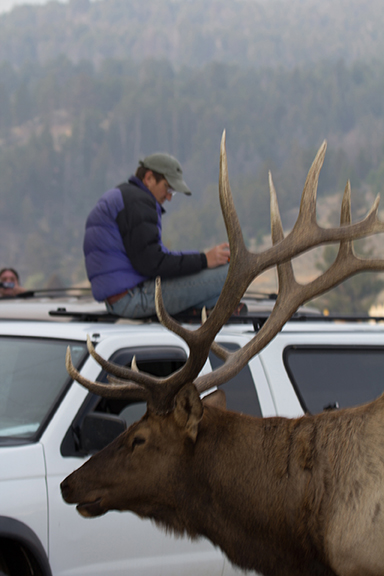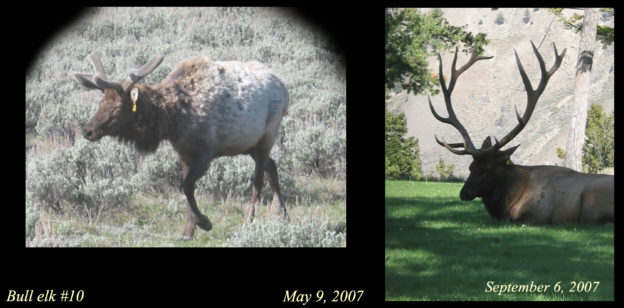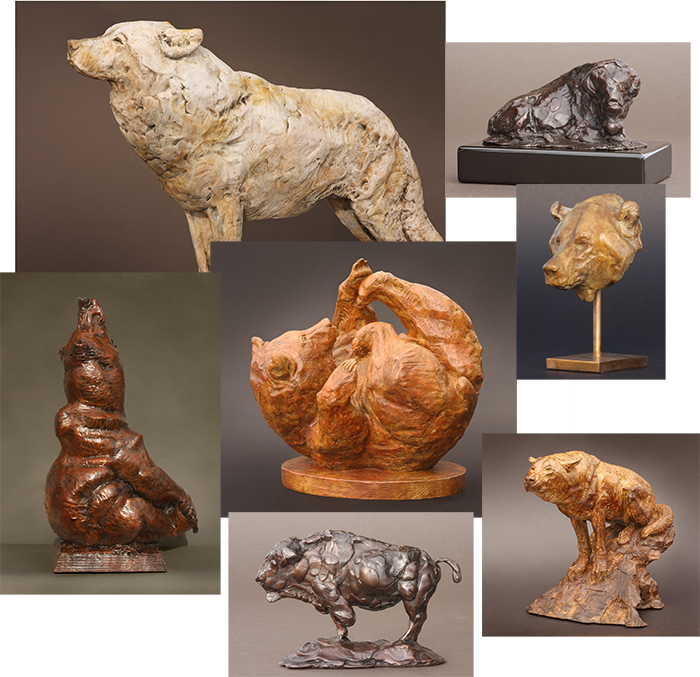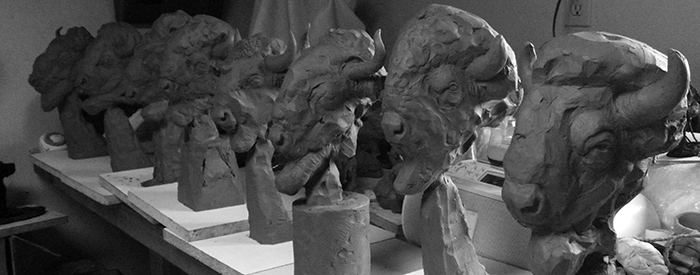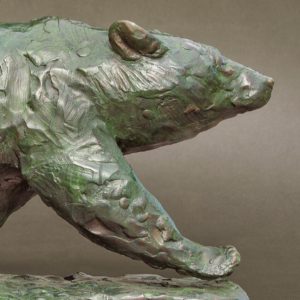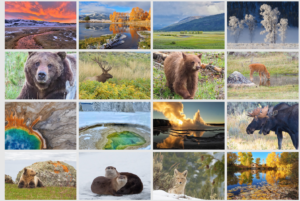“…all of them (bison) are the same, they’re everywhere, you’ve seen one, you’ve seen them all” – Roadside Tourist in Yellowstone.
In contrast to the quote above, nothing could be further from the truth when in the presence of the diversity and beauty of nature. It is seldom that we truly appreciate the power of the individual to move and shape us. You only have to start drawing or modeling a bison to realize that one cow bison cannot substitute for another—they are not carbon copy animals milling about in a neat, uniformly responsive herds. They have different hairdos, wildly divergent horn features, body types, behaviors, etc, and why not? These wild animals, of all species, are as uniquely individual as we are.
Individual personality in people is a ‘given,’ but in my world, this clearly applies to wild animals as well. Some may only be known for a few hours, maybe a day, while others have shared their entire lives with those humans willing enough to be patient and observe. Here in Yellowstone this means animals like grizzly bears 264, 211 (aka “Scarface”), “Quad Mom,” and black bear “Roosy”, Bull elk #10, #6, or “Roman”, wolves 21M, 42F, 832 (aka, the “’06 Female”), 113M, 302M, #7F, the sandhill crane “Bent Toe,” and so many other unmarked bison, bighorn sheep, osprey, pronghorn, peregrine falcons, coyotes, bald eagles, etcetera. This is one of the great gifts that Yellowstone offers—a chance to connect with individuals from another species.
